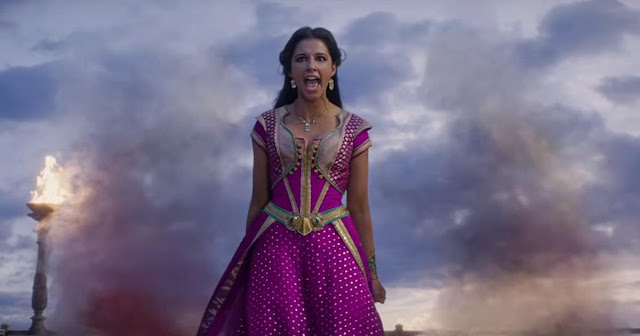Review: The Rose of Versailles (2025)
To celebrate the 50th anniversary of The Rose of Versailles anime, MAPPA launched a brand new movie that was licensed by Netflix to retell the story using updated music and animation. The Rose of Versailles sort of works as a film, but it struggles with many of the same issues as the Sailor Moon Cosmos movies in that it tries to retell a long story for people with short attention spans and ends up skipping over many important details. The movie is presented as a disjointed musical. The first hour contains a stylized music video practically every five minutes to notate the passage of time and the emotional state of the characters. There was only one point where it looked like a character was singing the song, and it came so long after the more artsy videos that it was pretty jarring.
MAPPA's adaptation of The Rose of Versailles is a visually stunning film that, despite its ambitious attempt to retell a decades-spanning story in a condensed format, falls short in fully capturing the essence of the original anime. While the animation and localization are noteworthy, the disjointed musical format and rushed pacing compromise the narrative's impact. Nonetheless, fans of French history and the original series will appreciate the film's grandeur and thematic fidelity, even if it doesn't entirely live up to expectations. Ultimately, The Rose of Versailles movie serves as a nostalgic reminder of the timeless story, rather than a definitive retelling.
The new adaptation of the 1972 anime retells the story about a woman named Oscar who is trained to be a French soldier to defend Marie Antoinette during the French Revolution. It combines history with fantasy by focusing on real historical figures who lived during the reign of King Louis XVI and the gender struggles of a woman who was raised as a man by no choice of her own. Like the anime, the film covers several decades of French history that continues in text form during the credit sequence. The problem is that the movie has only two hours to cover such a massive timespan, while the anime had 40 episodes. It tries to resolve this with voiceover narrations that cover the major historical events that took place between scenes and music video montages that brush over major events affecting the lives of the main characters with mixed results.
Although I didn't find this movie as entertaining as the series, its biggest strength is the animation. The artists did a spectacular job of recreating the grandeur of the Versailles palace, Rococo fashion, and the sprawling cathedrals and villages of the old French empire. The flower and rose petal theming was as prominent as in the original anime without being distracting, and the character designs were close enough to the original to feel authentic. The music videos made some daring stylistic choices using a lot of symbolism, color, and forced perspective. Sometimes these choices paid off, and other times they didn't. The music reminded me more of '80s synth than modern melodies, but none of the songs were particularly memorable.
Netflix did a good job with the localization. The English dub wasn't as cringeworthy as most anime, and the songs had both English and Japanese singers who were equally talented. The historical context can be appreciated by any culture with an interest in French history. There were a couple of times that it reminded me of Les Misérables, since that was another musical that took place during the French Revolution. My memory of the original anime was a little fuzzy when I watched this film, and the rushed pacing wasn't much help in refreshing it. The one thing it did remind me of was how depressing a story it turned out to be, as the French Revolution was a trying time for everyone involved.












Comments
Savannah | https://www.sunshinewithsavannah